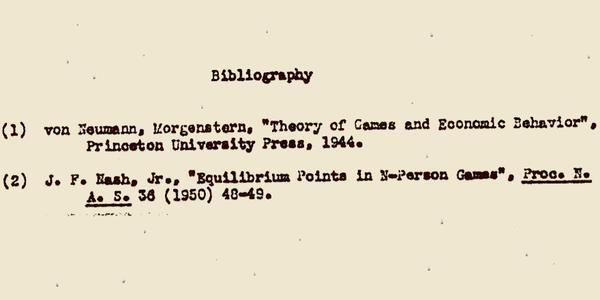
"When John Nash wrote "Non-Cooperative Games," his Ph.D. dissertation at Princeton, it was a concise 26 pages that introduced groundbreaking concepts to game theory."
"Nash's dissertation had minimal citations, referencing only John von Neumann and Oskar Morgenstern's pivotal work in game theory and his prior article on equilibrium points."
"The development of Nash's work laid the groundwork for his later Nobel Prize in Economic Sciences in 1994, marking a significant evolution in economic thought."
"Nash's slim bibliography symbolizes the challenge and reward of pioneering a new academic field, demonstrating the innovative spirit of scholars in economics."
John Nash's Ph.D. dissertation, "Non-Cooperative Games," written in 1950, was notably concise at just 26 pages and cited only two texts. The first was foundational work by John von Neumann and Oskar Morgenstern, which established game theory as a crucial field in economics. The second was Nash's own earlier article, 'Equilibrium Points in n-Person Games,' which laid the groundwork for his dissertation. His pioneering contributions ultimately earned him the Nobel Prize in Economic Sciences in 1994, marking a transformative moment in economic theory.
Read at Open Culture
Unable to calculate read time
Collection
[
|
...
]